‘It’s not unionism, it’s gangsterism’: silence on CFMEU Victoria’s John Setka no longer an option
The national leaders of the powerful female-dominated teachers and nurses unions have condemned the conduct of Victorian CFMEU leader John Setka.
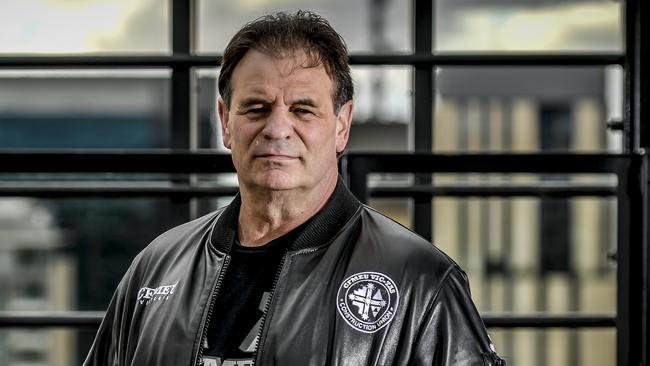
The national leaders of the powerful female-dominated teachers and nurses unions have condemned the conduct of Victorian CFMEU leader John Setka, saying his behaviour has no place in the union movement.
The decision to make a public stand against Mr Setka’s behaviour follows disbelief and fury expressed privately by national union leaders at his war on the AFL, including his threat to pursue the league’s umpiring boss and former building watchdog, Stephen McBurney, “until the end of the earth”.
Even by his standards, Mr Setka’s expletive-laden tirades, not once, but every day for four consecutive days, were next level, as he vowed to embark on a work-to-rule campaign against one of the country’s best-known institutions unless the league sacked Mr McBurney, the former Australian Building and Construction Commissioner who initiated legal action that saw the CFMEU hit with millions of dollars in penalties for unlawful conduct.
“The view of many of us is that when you threaten to pursue someone to the end of the earth, that’s not unionism, that’s gangsterism,” one national union leader told The Weekend Australian.
Correna Haythorpe, federal president of the 190,000-member Australian Education Union, said Setka’s threats against the AFL looked like a “revenge vendetta” and his aggressive behaviour damaged the reputation of the entire union movement.

“I represent teachers across Australia and we want to engage in the public debate in a way that is respectful and represents the broader expectations of society and it’s very damaging to have a union leader such as Mr Setka behaving in this way publicly. It undermines us all,” she told The Weekend Australian.
Annie Butler, federal secretary of the nation’s biggest union, the 326,000 Australian Nursing and Midwifery Federation, said the ANMF and its “very much largely female union membership does not see any place for this kind of conduct as part of the union movement”.
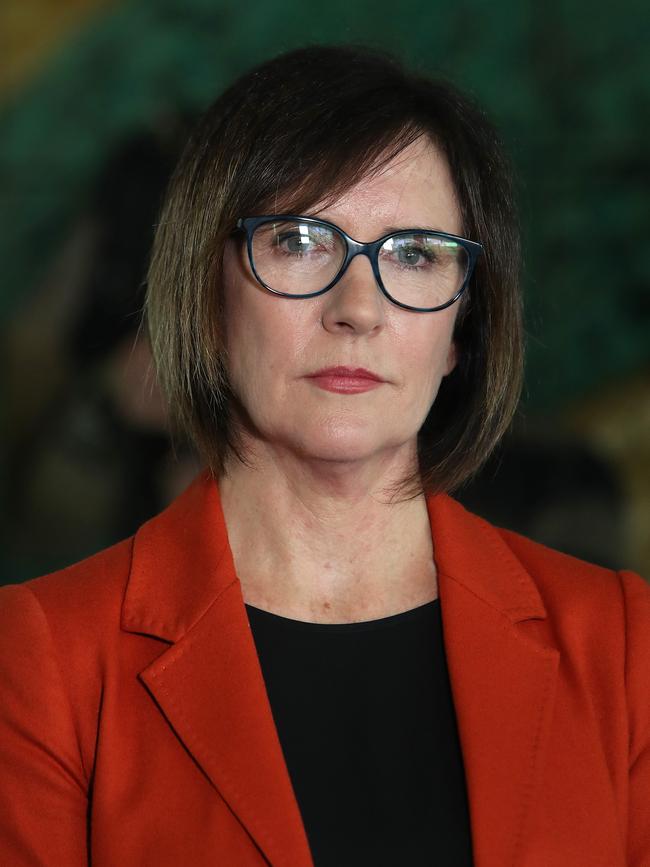
“ANMF members are frustrated by the constant stereotyping of the union movement in what’s an old-fashioned image that the movement is comprised only of blue-collar workers when the majority of union members now are female. Our core focus is on improving outcomes for the people in our members’ care across the country.”
Another union leader said that when he read Mr Setka’s threats against the AFL on the front page of The Australian, he rang around the heads of other unions and, “to be honest, we were just in disbelief”.
“It was almost like an own goal,” he said. “The ABCC has been abolished, we won that public argument so why would we want to put this up in lights and really create the environment that would reverse all of that, and show this is why we need the ABCC.”
A third union leader labelled Mr Setka’s threats “attention seeking and self-defeating”. “It’s just incredibly distressing when we are winning the public debate about the need for new laws and we are using them to win pay rises and better conditions for workers that he does this. It’s just destructive,” he said.
But Mr Setka does retain allies among the Victorian branches of left-wing construction unions, including the Australian Manufacturing Workers Union, whose state secretary, Tony Mavromatis, on Friday publicly backed the threat to wage a work-to-rule campaign on AFL projects and the need for the league to remove Mr McBurney.
“What it all comes down to is to remind people how bad the ABCC was, how it was designed to come after unions and workers, and attack workers’ conditions by going after their unions,” he said. “That’s why I would be supporting what Johnny’s saying.”
On Mr Setka’s threat to pursue Mr McBurney to the end of the earth, Mr Mavromatis said: “I can understand why the CFMEU would have that attitude.”
Asked if supported his sacking, he said: “Why is the AFL employing people of this nature, with these attitudes towards working-class people? They should remove him, yes.”
On whether he supported Mr Setka’s threatened work-to-rule campaign on AFL projects, Mr Mavromatis said: “Put it this way, I think what we’re saying is we’re not going to give the AFL any free kicks. We will treat them in a way where they are not getting any special treatment. That’s what I think Johnny’s saying, and I’d have to support that.”
He said whether his position was backed by the AMWU nationally was “not relevant to me. I look after Victoria. They can make comment if they want. For people who don’t know, John is a f..king gentleman at what he does. He does his job well.”
Union leaders critical of Mr Setka, who did not respond to requests for comment, are angry that his attack gave a free kick to the Coalition by assisting the opposition narrative that the CFMEU is out of control under Labor. In Canberra, the view at senior levels of the Albanese government was less shock and more frustration at Mr Setka’s conduct. “The general reaction was, ‘not this f..king guy again’,” one Labor source said.
While Anthony Albanese had been responsible for Mr Setka’s expulsion from the ALP, the Prime Minister’s initial refusal to give Mr Setka more oxygen by immediately and vocally repudiating his threats saw the opposition claim he had “effectively handed over control of our nation’s construction sector to his mates and donors at the CFMEU”.
When Mr Setka defied subsequent calls by Mr Albanese and Workplace Relations Minister Tony Burke to abandon the AFL campaign, declaring they should “stay out of it”, opposition employment spokeswoman Michaelia Cash claimed “the weak and impotent Prime Minister takes his instructions from John Setka and the CFMEU”.
But away from the TV cameras, the government had swung into action, using Mr Setka’s outburst as the trigger to finalise proposed laws to break up the CFMEU. The union’s mining and energy division had successfully split from the union and its manufacturing division, led by former CFMEU national secretary Michael O’Connor, had been trying to get out for more than two years but had struggled in the courts.
During the Senate vote on the government’s Closing Loopholes Bill earlier this year, crossbencher Jacqui Lambie moved amendments that would have allowed for a ballot of the manufacturing division, which includes many female textile workers, to quit the union and “give them freedom from John Setka”.
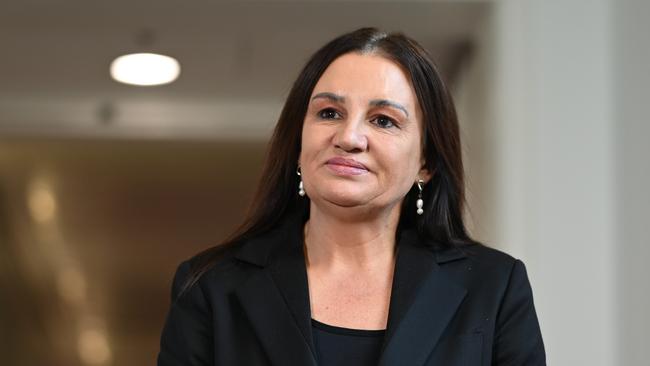
The government expressed sympathy with Senator Lambie’s position but refused to support the amendments, arguing the construction and manufacturing divisions should be given more time to settle their differences before the more dramatic step of a Labor government introducing laws to fast-track the break up of a major union. Union officials said the negotiations between the divisions was not about keeping them both inside the CFMEU, but about securing an amicable separation where agreement was reached over membership coverage, and manufacturing joined mining and energy as a stand alone union.
But there was too much bad blood and they could not reach an agreement. “Construction wanted coverage right across the supply chain, which would have gutted manufacturing’s coverage and left it to die a slow death,” one senior union source familiar with the discussions said.
“The issue had been under the radar for months, but Setka’s comments were so outrageous we knew it was not going to stay there. Jacqui Lambie would be back on her feet in the Senate making another speech. If we were going to be forced to do it, we thought we might as well own it.”
Another key official said: “Quite simply, construction wanted their first born. There was never going to be a deal.”
On Tuesday evening, The Australian revealed the government would fast-track legislation into federal parliament next week allowing the manufacturing division to split from the CFMEU if a majority of members agreed.
“We will provide the opportunity for members of the manufacturing division to vote on their future because the status quo is dysfunctional and cannot continue,” Mr Burke said.
Backing the government, ACTU secretary Sally McManus said “it has become clear that this issue cannot be resolved any other way”. “Unionism is about improving people’s working lives and living standards,” she said. “Mr Setka’s personal grudges have led to parts of his union wanting to leave. There is no place for the conduct of personal vendettas in our movement.”
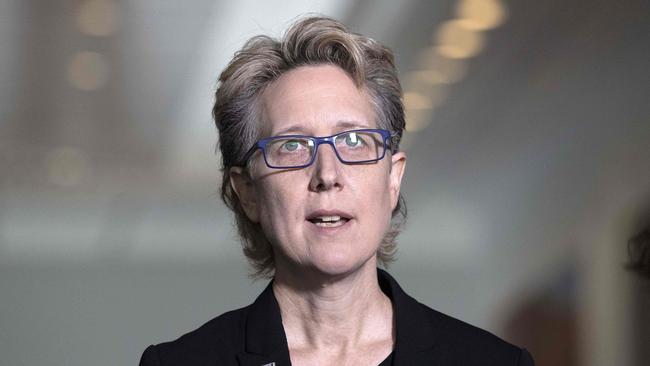
Senator Lambie told The Weekend Australian: “Well, isn’t it nice that Minister Burke has thought about Mr Setka’s retirement present. But, seriously, the government could have voted for my private senator’s bill back in February and this would have already been done.
“I am very pleased that the government has come to the party, and especially that those amazing women from the textile sector of the union can have a free vote and, hopefully, finally have a say in running their own show.”
Ms Haythorpe said that 80 per cent of the AEU membership were women and there had been for some time grave concerns expressed about Mr Setka’s behaviour.
“The trade union movement now is a female-dominated union movement and the sorts of aggressive behaviour that’s displayed by Mr Setka is something that we don’t condone, particularly in relation to what looks publicly very much like a revenge vendetta,” she said. “I think for some time the blokey image of the trade union movement has been out of sync with the reality on the ground, and this sort of behaviour just enhances that image. That’s not how we wish to be represented, nor how our members want to be represented.”
She said Mr Setka’s conduct risked damaging he union movement. “It just doesn’t reflect well,” she said. “That’s why I’m prepared to make a public statement. I’m sure that’s why Annie is prepared to make a public statement. Sally has also been out there talking about this in terms of (Setka) undermining the reputation of the broader trade union movement.
“What we want to say to the public is that this is not us, this is not who we are. We do expect a very high standard of behaviour and we don’t accept Mr Setka’s behaviour as something that reflects all of us.”




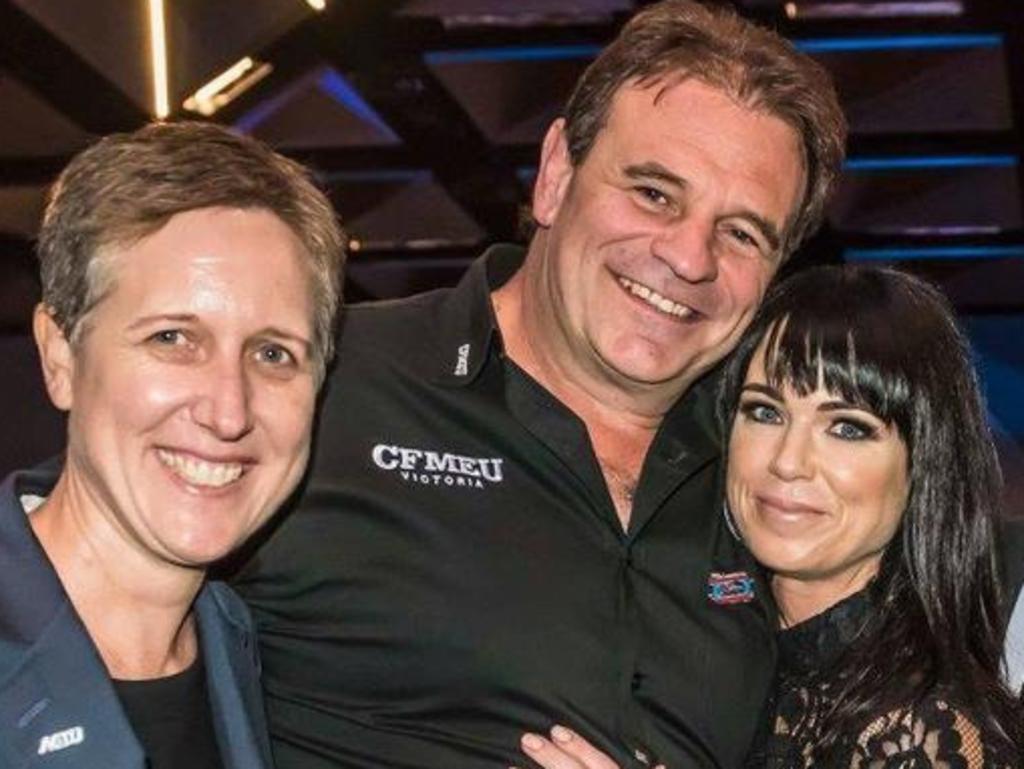
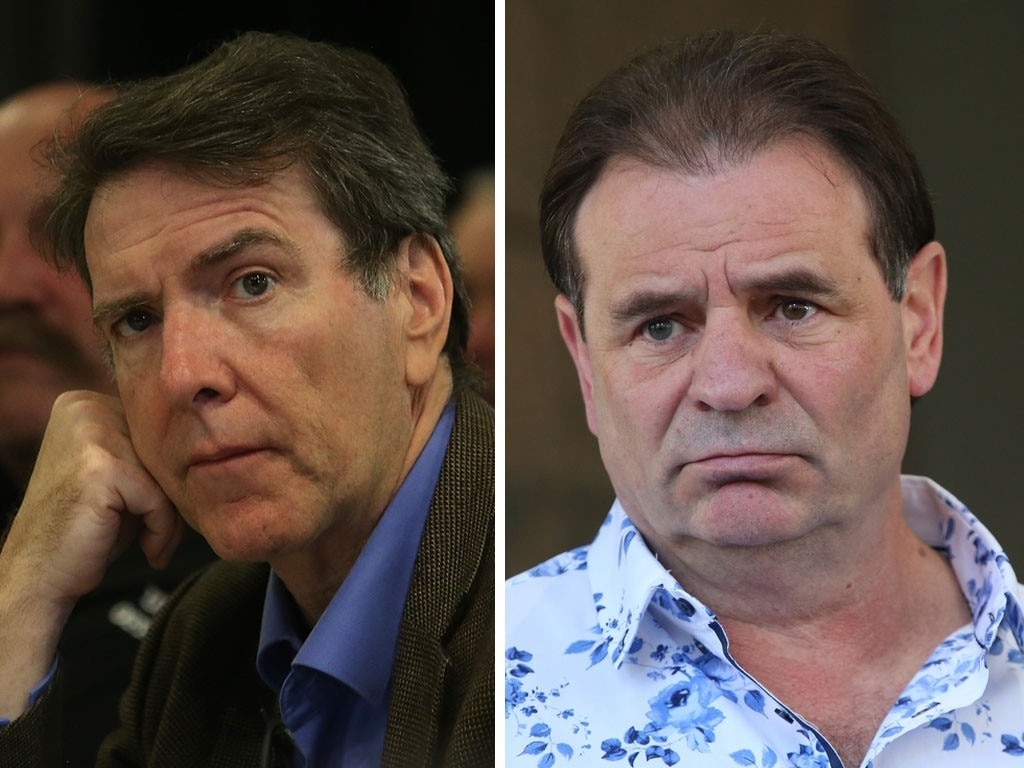


To join the conversation, please log in. Don't have an account? Register
Join the conversation, you are commenting as Logout